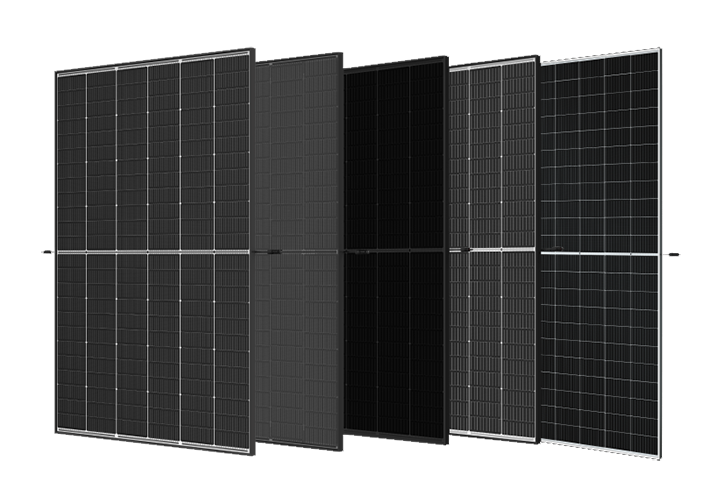☀️ A solar panel’s power output is measured in kilowatts (kW)
☀️ A 3-bedroom home will need a 3.5 kilowatts peak (kWp) system
☀️ Solar panels cover about 50% of a households electricity needs
Solar panels are a big investment, and you might feel overwhelmed by the technical terms – especially the term ‘solar panel output’. But don’t worry, I’m here to help you understand what it means and how to get the most out of your solar panels.
I’ve put together everything you need to know about how much electricity your solar panels can produce and how to maximise their efficiency and ultimately their power output.
What is a solar panel’s power output?
A solar panel’s output is measured in watts (W), which tells you how much electricity it can generate under certain conditions. These conditions vary depending on your location, the angle and direction of your roof, and the weather.
A common solar panel has a power rating of 350W, which means it can produce that much electricity in ideal conditions. In the UK, a solar panel with this power rating will produce on average 265 kilowatt hours (kWh) of electricity per year, which is about 75% of its listed power rating. A kilowatt hour (kWh) is a unit of energy that shows how much electricity you use; you can usually find it on your energy bills.
If you have 12 solar panels with a power rating of 350W each, your solar panel system will produce an average of 3,180 kWh of electricity per year. This is calculated by multiplying the number of panels by the average output per panel: 12 x 265W = 3,180kWh.
Average solar panel output per day
A solar panel with a power rating of 350W can produce about 0.72kWh of electricity in a day. But you need more than one panel to power your home. A typical 3-bedroom home requires a system with at least 10 solar panels to meet its electricity demand (but not all of this electricity will be used – I’ll explain why later). This means the whole solar panel system can generate 7.2 kWh of electricity in a day. This is calculated by multiplying the number of panels by the output per panel: 10 x 0.72 = 7.2kWh.
Solar panel output per m²
The output per m² of an average 350W solar panel in the UK is about 132.5kWh.
How much power can a Solar PV System generate for your property?
Your solar panel system should produce enough electricity to match your home’s consumption, if you have a good MCS Certified Installer who can estimate your needs accurately, like NXTGEN Energy.
But you won’t use all of this electricity, unless you have a battery to store the excess power for later. Without a battery, you’ll only use about half of the electricity you generate. With a battery, you’ll use about 80% of it.
The table below shows how much electricity different sizes of solar panel systems can produce for different types of homes. You can also read more about 5 kW solar panel systems and see if they suit your home.
Use our solar panel calculator to find out how many solar panels and what power rating you need.
| Property size | Annual electricity usage (kWh) | Solar PV System size (kWp) | Number of solar panels | Annual electricity output (kWh) |
|---|---|---|---|---|
| 1-2 bedroom | 1,800 | 2.1 | 6 | 1,587 |
| 3 bedrooms | 2,900 | 3.5 | 10 | 2,645 |
| 4+ bedrooms | 4,300 | 4.9 | 14 | 3,703 |
Why do solar panels only cover 50% of your electricity needs?
Solar panels have a major limitation: they can only provide electricity when the sun is shining.
This means that solar panels cannot generate any power at night, when there is no sunlight to capture. Moreover, most people are not at home during the day to use the electricity that solar panels produce. These are two main reasons why solar panels can only meet 50% of homeowners’ electricity demand.
One way to overcome this problem is to combine a solar panel system with a storage battery, which can store the excess energy that the panels produce.
But even with a battery, the homeowner can only use up to 80% of their solar-generated electricity, because batteries have limited storage capacity. The rest of the electricity goes back to the National Grid.
Solar panel output: winter vs summer in the UK
Solar panels produce different amounts of electricity depending on the season. This is because the amount of sunlight that reaches the solar panels changes throughout the year.
Solar panel output is lower in the winter in the UK – by about 83%, on average.
This is because the days are shorter in the winter, so the panels get less sunlight than they do in the summer. The sun is also closer to the horizon in the winter, which can affect how much sunlight the panels get. And it’s usually more cloudy.
High output solar panels
If you want to maximise your solar panel output, you might want to consider solar panels with a high power rating.
We’ve compiled a table of the most powerful solar panels on the market to help you find the best ones.
| Solar Panel Company | Solar Panel Model | Power/Output |
|---|---|---|
| Jinko | Tiger Neo N-type 72HL4 | 575 W |
| Longi | HI-MO-5 | 550 W |
| Q Cells | Q.PEAK DUO ML-G11 SERIES | 500 W |
| JA Solar | 72-cell MBB Half-cell Module | 470 W |
| Yingli | YLM 144 CELL | 450W |
| Canadian Solar | BiHiKu CS3W-450MB-AG | 450 W |
| Project Solar | Evolution Titan 445 | 445 W |
| Sunpower | MAXEON 6 AC | 440 W |
| REC Solar | Alpha Pure-R | 430 W |
| Sunpower | MAXEON 3 | 430 W |
How to monitor solar panel output
You should check your solar panels regularly to make sure they’re working well and producing the expected amount of electricity. If your solar panels’ output is too low, it could mean there is something wrong.
One way to do this is by looking at the solar panel meter in your home. This meter shows how much electricity your solar panels are making.
But some solar brands have made it even easier for you to monitor your solar panels online. You can use your computer or phone to see how much power your solar panels are generating with a simple click.
You can also download some apps that can help you track your solar system’s performance. Some of the most popular apps are:
- SolarEdge Monitoring
- Energy Monitoring & Analysis App (EMA)
- Enphase Enlighten App
- SMA Sunny Portal App
What affects how much electricity a solar panel can generate?
Your solar panels’ efficiency depends on the conditions they face. If the conditions are not ideal, your solar panels will not be able to produce as much power as they can.
There are several factors that can affect how much electricity a solar panel can generate. These include:
Direction and angle of your roof
The best position for a solar panel is on a roof that faces south and has a 35-degree angle. But solar panels can still work well on a roof that faces east or west, or has an angle between 10 and 60 degrees.
Most homes have roofs that fit these criteria – which is lucky, because changing the angle of your roof is not easy. You would need a complex frame system and new planning permission to do that.
Shade
Your solar panels need to be in direct sunlight, away from any shade. Even a little bit of shade on a solar panel can lower its power output a lot.
Time of the year
Solar panels produce more power in the summer when the days are longer and there is more sun.
But solar panels can also get too hot in the summer. If they get hotter than about 25°C, like in the heatwave we have had this summer in the UK, they will make less energy.
Dirt
Dirt on a solar panel can lower its power output by blocking the sunlight from reaching the panel. Luckily, you can do some things to keep your solar panels clean.
You should wash your solar panels regularly in the evening with a hosepipe, if you can reach them with the water jet.
If your panels are very dirty, you might need a professional cleaning service – and don’t forget: rain is not enough to clean your solar panels in the UK.
How will you know how much electricity your solar panels are generating?
You will get a meter with your solar panels that will be in a place you can easily see in your home. This meter will show how much electricity your solar panels are making.
Some solar brands also have online tools that let you see how much power your solar panels are making on your computer or phone with a simple click.
Solar panels don’t need much maintenance, so you might forget about them once they’re on your roof. But we suggest you check them often to make sure they’re clean and working well.
You should also keep an eye on your meter to make sure your solar panels are producing the right amount of power. If your solar panels’ output is too low, it might mean there is something wrong.
Are you ready to invest in Solar Panels and convert to clean, renewable energy?
If you are a UK homeowner and interested in learning more about how much money you could save with a Solar PV System, contact our expert solar energy team today. We specialise in Solar Panel Installations Essex, but we also do installations across the south-east of the UK. By filling out our contact form, our team will provide you with a free no-obligation quote to install a bespoke solar PV system, catered to your personal energy needs. Call us on 01268 928 690 or click the ‘Enquire Now’ button below to claim your free no-obligation quote and solar PV system design.
Frequently Asked Questions about Solar Panels
The short answer is yes. Solar panels can cut 70% off your energy bills, and that proportion is growing as gas bills rise. No wonder installations have risen by 45% in the last three years, and shot up by 80% in the last year alone. But solar panels are an investment.
1-2 bedroom property, 6 solar panels generating about 1,600 kWh a year.
3 bedroom property, 10 solar panels generating about 2,650 kWh a year.
4-5 bedroom property, 14 solar panels generating about 3,700 kWh a year.
The answer depends on how much you pay for the solar panels, how much your electricity would otherwise cost, how much green energy the panels make from the sunshine you get, and whether you have a battery installed or not. The average payback period for solar PV is coming down and can be about 10 to 20 years depending on your system.
The industry standard for most solar panels’ lifespans is 25 to 30 years. Most reputable manufacturers offer production warranties for 25 years or more. The average break even point for solar panel energy savings occurs six to 10 years after installation.
Whilst there is no hard and fast rule as to how much value solar panels can add to the overall value of your property, suggestions range from 4% to 14% on average and they are certainly unlikely to detract from the value of your home, even if they aren’t the most attractive feature visually.
Latest Solar Panel Posts
- Why Leisure Centres Should Invest in Solar Panels
 In recent years, the concept of sustainability has become increasingly vital in various industries, including leisure centres. As the global focus shifts towards environmental conservation and renewable energy sources, leisure centres are recognizing the importance of investing in sustainable practices to reduce their operating costs and their carbon footprint. One such sustainable solution gaining traction… Read more: Why Leisure Centres Should Invest in Solar Panels
In recent years, the concept of sustainability has become increasingly vital in various industries, including leisure centres. As the global focus shifts towards environmental conservation and renewable energy sources, leisure centres are recognizing the importance of investing in sustainable practices to reduce their operating costs and their carbon footprint. One such sustainable solution gaining traction… Read more: Why Leisure Centres Should Invest in Solar Panels - Solar Panels and EPC Ratings
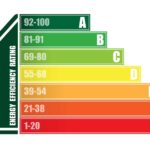 Solar panels have become increasingly popular as a sustainable energy solution, offering numerous benefits for both residential and commercial properties. In parallel, Energy Performance Certificate (EPC) ratings serve as indicators of a building’s energy efficiency. Understanding how solar panels can impact EPC ratings is crucial for maximizing energy savings and environmental benefits. This blog post… Read more: Solar Panels and EPC Ratings
Solar panels have become increasingly popular as a sustainable energy solution, offering numerous benefits for both residential and commercial properties. In parallel, Energy Performance Certificate (EPC) ratings serve as indicators of a building’s energy efficiency. Understanding how solar panels can impact EPC ratings is crucial for maximizing energy savings and environmental benefits. This blog post… Read more: Solar Panels and EPC Ratings - SunSynk Batteries: Innovative Energy Storage
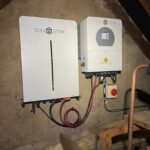 SunSynk Batteries have emerged as a leading solution in the realm of energy storage, offering a range of innovative features and benefits that cater to various applications. With a focus on sustainability and cutting-edge technology, SunSynk Batteries have captured the attention of residential, commercial, and industrial consumers alike. This blog post delves into the intricate… Read more: SunSynk Batteries: Innovative Energy Storage
SunSynk Batteries have emerged as a leading solution in the realm of energy storage, offering a range of innovative features and benefits that cater to various applications. With a focus on sustainability and cutting-edge technology, SunSynk Batteries have captured the attention of residential, commercial, and industrial consumers alike. This blog post delves into the intricate… Read more: SunSynk Batteries: Innovative Energy Storage - Solar Industry Update: Battery Installations in Lofts
 The British Standards Institute (BSI) has recently released new recommendations regarding home battery installations, including those in loft spaces. One common inquiry we receive from our customers following the publication of the Publicly Available Specification (PAS) is whether a solar battery can be installed in a loft. The answer is a resounding yes, with some… Read more: Solar Industry Update: Battery Installations in Lofts
The British Standards Institute (BSI) has recently released new recommendations regarding home battery installations, including those in loft spaces. One common inquiry we receive from our customers following the publication of the Publicly Available Specification (PAS) is whether a solar battery can be installed in a loft. The answer is a resounding yes, with some… Read more: Solar Industry Update: Battery Installations in Lofts - Voltage Optimisers, What Are They and How Do They Work?
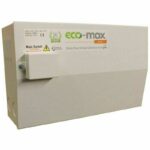 What is voltage optimisation? A voltage optimiser is a smart device that can help you save energy and reduce your carbon footprint. It works by adjusting the power supply from the National Grid to the ideal level for your electrical devices and appliances at home or work. This way, you can use less electricity and… Read more: Voltage Optimisers, What Are They and How Do They Work?
What is voltage optimisation? A voltage optimiser is a smart device that can help you save energy and reduce your carbon footprint. It works by adjusting the power supply from the National Grid to the ideal level for your electrical devices and appliances at home or work. This way, you can use less electricity and… Read more: Voltage Optimisers, What Are They and How Do They Work? - String Inverter vs Microinverter: Centralized vs Modular
 Imagine waking up to a sunny morning, not just because the birds are chirping, but because your roof is silently turning sunlight into clean energy for your entire home. That’s the beauty of solar power, but with all the different equipment options, it can feel overwhelming. One crucial decision you’ll face is choosing between string… Read more: String Inverter vs Microinverter: Centralized vs Modular
Imagine waking up to a sunny morning, not just because the birds are chirping, but because your roof is silently turning sunlight into clean energy for your entire home. That’s the beauty of solar power, but with all the different equipment options, it can feel overwhelming. One crucial decision you’ll face is choosing between string… Read more: String Inverter vs Microinverter: Centralized vs Modular - Why UK Homeowners with Solar Panels Need Bird Proofing (Beyond the Basics)
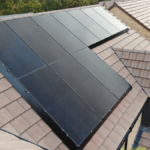 Imagine waking up to the quiet hum of your solar panels, generating clean energy to power your home. It’s a beautiful image, symbolizing lower electricity bills and sustainability. But what if a gang of birds decided the solar panels on your roof were the perfect spot for their new condo complex? Unfortunately, this idyllic scene… Read more: Why UK Homeowners with Solar Panels Need Bird Proofing (Beyond the Basics)
Imagine waking up to the quiet hum of your solar panels, generating clean energy to power your home. It’s a beautiful image, symbolizing lower electricity bills and sustainability. But what if a gang of birds decided the solar panels on your roof were the perfect spot for their new condo complex? Unfortunately, this idyllic scene… Read more: Why UK Homeowners with Solar Panels Need Bird Proofing (Beyond the Basics) - How AI could supercharge your solar panels
 Imagine stepping outside on a crisp January morning, a mug of steaming tea warming your hands. You glance at your rooftop, not with dread at energy bills, but with a mischievous grin. Why? Because the sun, that cheeky orb in the sky, is being squeezed for every juicy watt it holds thanks to your AI-powered… Read more: How AI could supercharge your solar panels
Imagine stepping outside on a crisp January morning, a mug of steaming tea warming your hands. You glance at your rooftop, not with dread at energy bills, but with a mischievous grin. Why? Because the sun, that cheeky orb in the sky, is being squeezed for every juicy watt it holds thanks to your AI-powered… Read more: How AI could supercharge your solar panels - New solar panel concept could reduce payback time to just five years
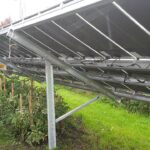 Researchers have conducted a comprehensive analysis and determined that a ground-breaking renewable energy concept has the potential to significantly reduce the payback period for solar panels to less than five years. This innovative approach, known as agrivoltaics or Agri-PV, involves the integration of solar farms with “shadow-friendly” crops. A team of experts from the esteemed… Read more: New solar panel concept could reduce payback time to just five years
Researchers have conducted a comprehensive analysis and determined that a ground-breaking renewable energy concept has the potential to significantly reduce the payback period for solar panels to less than five years. This innovative approach, known as agrivoltaics or Agri-PV, involves the integration of solar farms with “shadow-friendly” crops. A team of experts from the esteemed… Read more: New solar panel concept could reduce payback time to just five years - Soak up the sunshine, because solar power is on fire!
 2023 was a record year for renewable energy, thanks in no small part to our sun-loving friend, solar. The International Energy Agency (IEA) says solar power added enough juice to the grid to power up half of all new renewable energy in 2023 – that’s a 50% jump! And this isn’t just a one-year blip,… Read more: Soak up the sunshine, because solar power is on fire!
2023 was a record year for renewable energy, thanks in no small part to our sun-loving friend, solar. The International Energy Agency (IEA) says solar power added enough juice to the grid to power up half of all new renewable energy in 2023 – that’s a 50% jump! And this isn’t just a one-year blip,… Read more: Soak up the sunshine, because solar power is on fire! - Reasons Why Solar Energy is the Ultimate Homeowner’s Investment
 In recent years, solar energy has emerged as a game-changer in the world of residential power generation. As concerns about the environment and rising utility costs continue to grow, homeowners are increasingly turning to solar energy as a sustainable and financially savvy solution. This article aims to explore the reasons why solar energy is the… Read more: Reasons Why Solar Energy is the Ultimate Homeowner’s Investment
In recent years, solar energy has emerged as a game-changer in the world of residential power generation. As concerns about the environment and rising utility costs continue to grow, homeowners are increasingly turning to solar energy as a sustainable and financially savvy solution. This article aims to explore the reasons why solar energy is the… Read more: Reasons Why Solar Energy is the Ultimate Homeowner’s Investment - Why Your Business Should Invest in Commercial Solar Panels
 Solar panels on houses and residential properties have become increasingly common in the last year. The number of individuals seeking a more sustainable way of living continues to grow each year. However, the pursuit of a greener existence is not limited to domestic life. Investing in commercial solar panels is an excellent way to reduce… Read more: Why Your Business Should Invest in Commercial Solar Panels
Solar panels on houses and residential properties have become increasingly common in the last year. The number of individuals seeking a more sustainable way of living continues to grow each year. However, the pursuit of a greener existence is not limited to domestic life. Investing in commercial solar panels is an excellent way to reduce… Read more: Why Your Business Should Invest in Commercial Solar Panels

